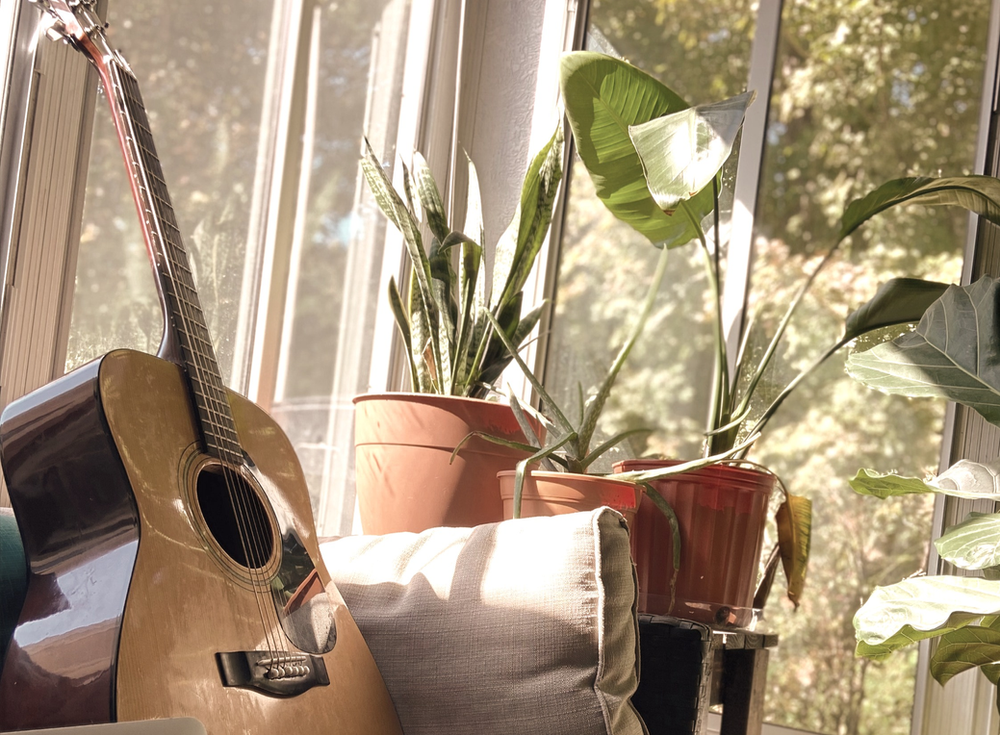I think every worship leader should write songs. It would probably be accurate to say that most worship leaders have either written or attempted to write a worship song at least once in their life. However, many worship leaders and Christian musicians don’t write on a regular basis. Maybe it’s because of the time commitment, or maybe it’s the insecurity that our songs don’t measure up to the quality of songs written by the professionals. After all, why do I need to write songs for my church when Matt Maher, Ben Hastings, and Mia Fields are writing absolute bangers?
Singing original songs in church is a beautiful thing, but I actually don’t think it’s the main reason everyone should write. The real benefit of songwriting is for spiritual formation. Songwriting is a spiritual discipline that I think every worship leader (or Christian musician) should do, and here’s two big reasons why:
1. Worship leaders should write songs because it promotes meditation
The word “mediate” is found in the book of Psalms 19 times. We aren’t just supposed to read God’s law; we’re to meditate on it (Psalm 1). I think it’s no mistake that meditation and Psalms go hand in hand. When you take a truth from Scripture and try to say it 100 different ways until it makes sense with a melody and meter… a rhyme scheme and a sticky metaphor… something that is both logical and emotional… it gets stuck in the core of your soul until it naturally starts coming out in your thoughts, words, and actions. God’s Word starts to come to life in a new way because you’re living in it and not just reading it. I’m a tactical/ kinesthetic learner; so reading or listening to a Psalm is just the first step in meditating for me. It’s when I sit down with a notepad and a guitar when the truth of God’s law really sinks in.
2. Worship leaders should write songs because it stirs joy and affection
We’re commanded in Scripture to sing a new song to the Lord. (Psalm 96:1) And though we aren’t all told to write a new song, somebody has to write these new songs, right? Why only sing someone else’s song? Yes, I love celebrating someone else’s songs about someone else’s victory over someone else’s battle, but there’s nothing more meaningful and impactful than singing a personal song to the Lord that was written from my heart about the victories over my own battles. One of my favorite things to do whether I’m by myself or with others is sing my newly written songs. It stirs my affections for the Lord like few other things do. In probably 20 years of writing church songs, I have literally NEVER debuted an original song in church where I didn’t at least tear up a little bit. Usually I straight-up ugly cry. My emotions are moved significantly more by the songs written from my own heart than by the songs written from others. That’s not because I think my songs are better. They just come from a deeper place, and I think every worship leader needs to experience this for their own joy and affection.
One caveat is that sometimes I get stuck in the rut of trying to write a song for my church. And what I mean by that is that sometimes my motivation for writing is to get the satisfaction of knowing that our church is singing “my” song. There’s nothing wrong with writing for the church, but (for me) when the focus is primarily on the quality of the song, I can tend to neglect the authenticity of it, and that is why I call it a rut. Usually the most authentic songs come when I write out of my time with the Lord. I’m not trying to produce a good song; it’s worship.
Songwriting may come more naturally to some than others, but that does not mean you shouldn’t write. It’s not about how creative you think you are or how good your songs turn out. When choosing songs for your church, quality is important. And the more you write, the better your songs will get. But songwriting isn’t just a tool for producing songs; it’s a spiritual discipline that, when rooted in Scripture, can move us to be more like Christ. If you don’t already write, don’t be discouraged by how difficult it might seem at first. In my next post, I’ll give some practical tips and tools for helping you get started as a songwriter.

